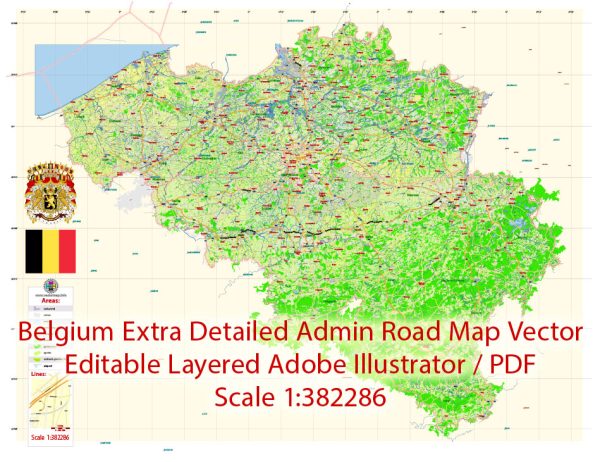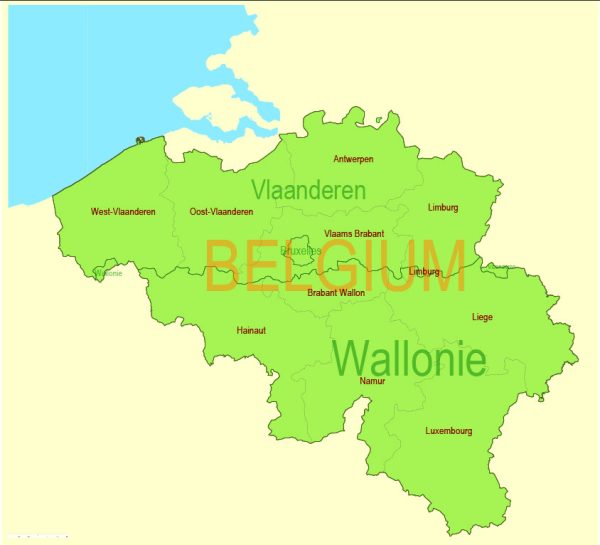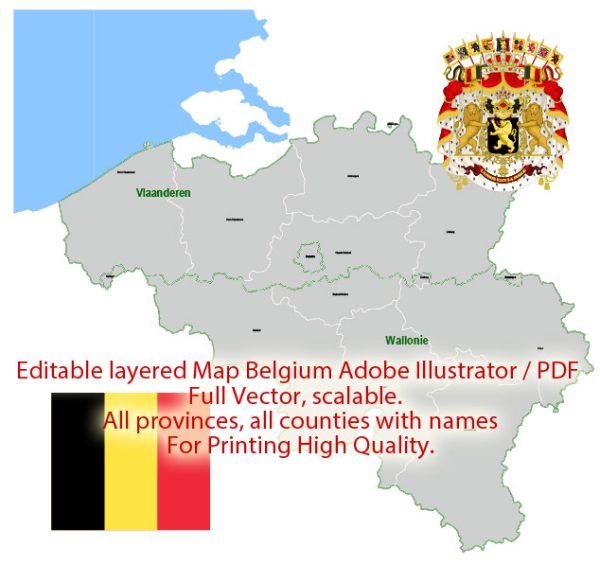Belgium, officially known as the Kingdom of Belgium, is a European country with a rich and complex history. Its history is marked by a series of invasions, political changes, and cultural developments. Here is an overview of Belgium’s history:
- Ancient and Medieval Periods:
- The region that is now Belgium has a history dating back to Roman times when it was part of the Roman province of Gallia Belgica.
- After the fall of the Roman Empire, the area saw successive waves of Germanic and Frankish tribes settle in the region.
- In the Middle Ages, the region that would become Belgium was fragmented into various feudal states and fiefdoms, including Flanders, Brabant, and Wallonia.
- The city of Bruges became an important center of trade and commerce during the late medieval period.
- Spanish and Austrian Rule:
- In the 16th century, the Spanish Habsburgs ruled over the Low Countries, which included modern-day Belgium, as part of the larger Habsburg Empire.
- The rule of the Spanish crown led to religious and political tensions, which culminated in the Eighty Years’ War (1568-1648), in which the northern provinces, now the Netherlands, gained independence from Spain.
- The Southern Netherlands:
- What is now Belgium remained under Habsburg rule but eventually passed into the hands of the Austrian Habsburgs in the early 18th century.
- Under Austrian rule, the Southern Netherlands enjoyed a period of relative stability and prosperity.
- French Rule:
- In 1795, during the French Revolutionary Wars, the French Republic annexed the Southern Netherlands.
- The region was ruled by France under Napoleon Bonaparte and underwent significant administrative and social reforms.
- United Kingdom of the Netherlands:
- After the defeat of Napoleon in 1815, the Congress of Vienna united the Southern Netherlands with the Northern Netherlands (the former Dutch Republic) to create the United Kingdom of the Netherlands.
- This union was not popular among the people of the Southern Netherlands, leading to political and cultural tensions.
- Belgian Independence:
- In 1830, the people of the Southern Netherlands, primarily Catholic and French-speaking, revolted against Dutch rule and declared their independence.
- The Belgian Revolution led to the recognition of the independent Kingdom of Belgium in 1831.
- 19th and 20th Century:
- The 19th century saw the development of Belgium as a constitutional monarchy.
- Belgium remained neutral during both World War I and World War II.
- After World War II, Belgium became a founding member of the European Coal and Steel Community, which later evolved into the European Union.
- Modern Belgium:
- Belgium is known for its complex linguistic and regional divisions, with Dutch-speaking Flanders in the north, French-speaking Wallonia in the south, and a small German-speaking community in the east.
- The country has a federal system of government with considerable regional autonomy.
- Belgium is also the de facto capital of the European Union, as it hosts the EU’s headquarters in Brussels.
Belgium’s history is a testament to its resilience and ability to adapt to changing political and cultural landscapes. Today, it is a diverse and multicultural country with a strong presence in European affairs and a commitment to maintaining peace and stability on the continent.





 Author: Kirill Shrayber, Ph.D. FRGS
Author: Kirill Shrayber, Ph.D. FRGS